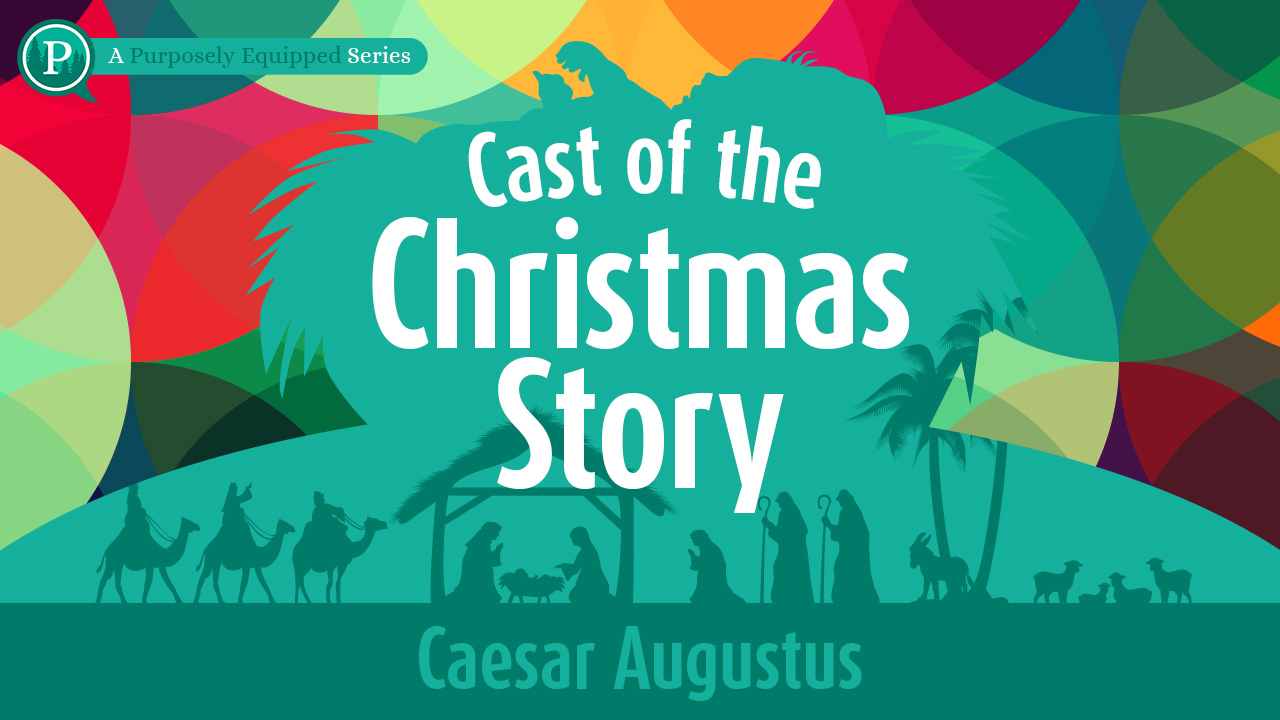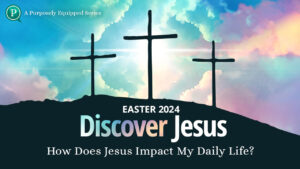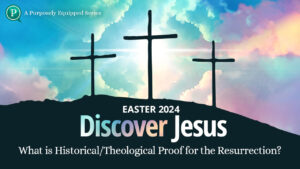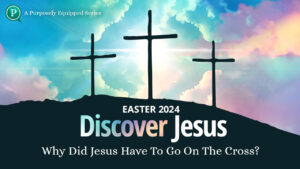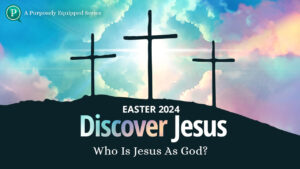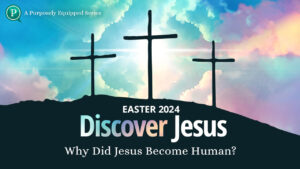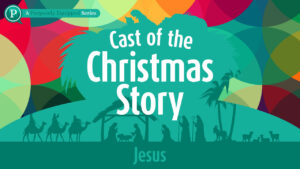Mark Holland and Pastor Jeremy Roh of East Renton Community Church discuss the historical context of the Christmas story, focusing on the role of Caesar Augustus. They highlight how God used Augustus, the first Roman Emperor, to set the stage for the birth of Jesus and the spread of the gospel.
Special thanks to World Concern Global Gift Guide, for bringing us the Cast of the Christmas Story!
Show Notes:
Transcription:
Mark Holland:
The cast of the Christmas story series is sponsored by World Concern and the Global Gift Guide. Find out more at globalgiftguide.org.
Voiceover:
The cast of the Christmas Story.
Mark Holland:
And it’s time for another cast of the Christmas story feature where we talk about people that were surrounding Jesus and Mary and Joseph. There was obviously much more going on in the background, but the Bible brings that out and the story, a lot of people who are maybe insignificant. The one we’re looking at today though, at least historically, there’s a lot of information about historically because we’re talking about Caesar Augustus and that historical marker, that context that it brings to the cast of the Christmas story we have with us to help, Jeremy Roh. He’s the pastor of East Renton Community Church. Hi, there Jeremy.
Jeremy Roh:
Hi. Great being with you guys today.
Mark Holland:
Good to see you. You traveled in to record this today. We appreciate that. Renton is a little bit ways away from Shoreline Campus here, but it was okay to get in here today.
Jeremy Roh:
It was great. So happy to be here.
Mark Holland:
Good to see you. And you are a real connoisseur, we found out before we started recording of podcasting and of this kind of information. So you like sharing in this kind of format?
Jeremy Roh:
I do. I love sharing in podcast format because it gives people a chance to hear on various topics from various people about various things that encourage them and excite them. And I think many times as we’re even driving, as I was driving even here from Renton, listening to various people talking about all the important subjects.
Mark Holland:
All the important subjects. And as we’re recording, obviously the Middle East back in turmoil and we’re praying for Israel and everybody involved there. Tell us a little bit more about you personally. Now you’ve been with this church for how long?
Jeremy Roh:
So I’ve been with East Renton Community Church for the past two years as their senior pastor. My wife and I and our two kids, Emory and Bennett moved from Denver, Colorado out here two years ago. And it’s been a great time getting to know the Pacific Northwest and the culture out here. And we’ve just had such an encouraging time with the church.
So I went to school to undergrad at the University of Texas in Austin and I studied history. So this assignment, this research project in many ways was exciting for me just to kind of go into history books and into different articles and sites about talking about Caesar Augustus. Did my seminary at Dallas Theological Seminary and then transferred over to Denver Seminary as I took my first call as a senior pastor out there.
Mark Holland:
Okay. Well, it sounds like you’re prepared well for your role and you aren’t afraid of history, you aren’t afraid of the historical context of the Christmas story and the cast. Tell us a little bit then about this particular person, Caesar Augustus. What are the basic things you’ve discovered about this person?
Jeremy Roh:
So Caesar Augustus seems to be a interesting character. First, I think the most important thing is that he is known to be the first Roman emperor of the Roman Empire. And so his adopted father was Julius Caesar, and I think the story of Julius Caesar being assassinated and he had a lot of enemies, and Rome was in this mentality of war, mentality of fighting off aggressors, fighting off people. And so it wasn’t really an empire, it was more of they were a country that showed aggression and won wars and fought wars. And so as Julius Caesar was murdered and assassinated, here comes his nephew who comes to power as his adopted son and his one heir, Augustus.
And so Caesar Augustus has a very different model of leadership, a very different model of what Rome is going to be. And there’s this term called Pax Romana. It means Roman peace. And so something very different culturally for the Roman people was to understand that hey, this is not going to be a time of war, this expansion of Roman ideas, Roman cultures, it’s not going to be done through aggression. It’s going to be done through peace. And so as we even approach the Christmas story where you see Mary and Joseph having to return back to Bethlehem for the census. The census-
Mark Holland:
Which was called by Caesar Augustus.
Jeremy Roh:
Exactly. So Caesar Augustus calls the census so that he can understand who he needs to tax. He wants to take census-
Mark Holland:
Not who he needs to care about, but just who he can get, squeeze some money out of.
Jeremy Roh:
Exactly. He wants to know every person in the empire who he can tax. And this is a part of Caesar Augustus’ plan. He wants to improve all the logistics, the infrastructure of Rome. He wants to make all the roads, he wants to unify the language, he wants to make sure that the tax system is set and stout so that there is enough income generated by the empire. And he’s not trying to kill everyone, he’s not trying to overtake everyone. He wants to use these countries and these other cultures and allow them to be the way they are, but he just wants to have them understand now they’re a part of the Roman Empire.
And so again, Caesar Augustus being the first Roman emperor kind of finds himself in the situation where people are accepting this Roman peace and prosperity and this huge influx of infrastructure in the region.
Mark Holland:
Yeah, it’s a model for today. There’ve been many dynasties through the centuries and Rome was certainly one of the most powerful. How long was the reign of the Roman Empire? What 500 years?
Jeremy Roh:
I-
Mark Holland:
300, 500?
Jeremy Roh:
It all depends on when you determine when the end of the Roman Empire was. But this idea of Pax Romana was for about 250 years, give or take. And so as you see kind of near the end where if you’ve watched the movie Gladiator, you see Marcus Aurelius and kind of the downfall of all the emperors, it kind of depends on where you mark the end. I’m not a Roman historian in that sense, but you see the downfall of the Roman Empire. But when we talk about Caesar Augustus, we’re talking about the very beginning of this empire being formed.
Mark Holland:
So it uses that term in the scripture when the fulfillment of time came, Jesus arrived. So God obviously was setting the stage. You say Rome was a time of peace in a sense, an iron rule, but it’s still a sense of commerce going, building of roads so that people could get around like never before. And that was the world that Jesus was coming into.
Jeremy Roh:
Yeah, and I think that’s what’s so fascinating that Luke does choose to name Caesar Augustus in the gospel. It’s explaining that the people who are reading the text, they’re living in the empire, they’re seeing the benefits that Caesar has brought in with the infrastructure, with the roads, with the trade, with the merging of these cultures. And some of these historians, they write about how this Roman Empire was like a melting pot. You have this empire stretching over three different continents.
And so as it stretches over three different continents, what was Roman was no longer just what happened in Italy, just what happened in Rome. What was Roman now was spanning across three different continents and all of these various cultures, and it was this melting pot of sorts. And so as you had people in the Middle East experiencing the benefits of the Roman Empire, the benefits of this, so even something with the census, maybe it was an inconvenience that he had to travel so far, but there probably also was a little bit of excitement for maybe not Mary and Joseph, but for other people understanding now we have the protection of the empire. Now we have this ability to increase trade, to increase our economy because we are connected to such a great power as Rome. And again, this is just the beginning.
And so we see for the next 200 years, at least as the next 200 years, the golden age of the Roman Empire just in full fruition where they are able to build roads that we still see today and we have these trade routes that we still benefit from.
Mark Holland:
So this is the world that Jesus came into as a baby. But again, what’s interesting is the Jewish community, the Jewish culture at that time, they were looking for Messiah to be a political leader, to be someone who’s going to come in and lift up Israel and set everything straight. They didn’t know about this first coming of Jesus as a savior who needs to die for His people. But that is the kind of what they’re expect, all of them, even Mary and Joseph, I think they thought maybe Jesus was going to be this Messiah, maybe a political figure.
Jeremy Roh:
Yeah, and so I think the interesting thing about Caesar Augustus is that that’s what you would expect the Messiah to look like, right? You would expect the Messiah to look like a Caesar, to look like someone who was sitting on the throne of authority, someone who had all this ability to claim peace, to claim this idea of Pax Romana, but in essence the peace of God, a Pax day, and be able to say that the rule and the kingdom of God is at hand. And here, let me show you the empire of God. But we see in stark contrast to Caesar Augustus, the birth of Christ, that the incarnate God chooses the form of a helpless babe, that he chooses that form instead of choosing to have his son be born in-
Mark Holland:
Born into a politically influential family or whatever. Yeah. He’s got his own plan. His ways are not our ways. What’s interesting too is tell us about how Augustus was a fulfillment of prophecy.
Jeremy Roh:
The whole idea that Augustus was being used by the sovereign hand of God, that Augustus, even though he may not have known that he was being used by God, him even calling for the census so that people could be recorded to be taxed, was a part of God’s plan because Joseph had to then go to Bethlehem. And so we know in scriptures in Micah chapter five verse two, we know that the Messiah is going to be born in Bethlehem. We know that that’s how the line of David is going to be fulfilled and the Davidic covenant is going to be fulfilled is through the birth of this king. And so how does God do that? He uses guys like Caesar Augustus who have no concept of who the mess, I mean the Messiah is. He chooses and he says, you don’t know why you want this idea of a census to be taken, but it’s a part of God’s sovereignty and a part of God’s plan.
Mark Holland:
Yeah, and there are so many scriptures about the coming of the Messiah that are in the Old Testament. This is just one of them. There are how many hundreds of prophecies are there about the birth of Christ? Many.
Jeremy Roh:
Many.
Mark Holland:
Many.
Jeremy Roh:
Many. I don’t know the number off the top of my head.
Mark Holland:
And his entire life, all of these things. And maybe this one could have been a coincidence, but there are so many that add up to an incredible amount of prophecy about the person of Christ and going to Bethlehem and being, because it mentioned that he would be the son of David. And of course Bethlehem is the city where David was from, and that’s the connection there. Okay. What else do we need to keep in mind about Augustus Caesar?
Jeremy Roh:
So in terms of understanding who Augustus was and his rule and reign, I do want to kind of camp in the sovereignty of God and when it comes to leaders who are in power and many times whether they are good leaders or bad leaders. And I think in my studies it’s knowing that Caesar Augustus was a good leader and maybe he wasn’t-
Mark Holland:
By Roman standards, certainly.
Jeremy Roh:
Exactly. I mean, just in the sense of an objective look at the Roman Empire and how it grew into the empire that we know of today, that the history books write of, Caesar Augustus was responsible for the start of it. He was responsible for the proliferation of this Roman Empire, and he did a great job in that. Again, not going into whether he was a servant of God or [inaudible 00:12:09].
Mark Holland:
The brutality obviously of the, yeah.
Jeremy Roh:
Yeah, the brutality of what it looked like to build an empire like that. But I think the thing I want to camp on when it comes to leaders like Caesar Augustus is that the sovereignty of God was over the whole process, whether he was good or bad, whether it was brutal or peaceful, that God used all of the decisions that he made in order to further the gospel, in order to further the plan.
And again, this is kind of where my mind goes when I think of the Roman Empire now, is that the things that Caesar Augustus was doing during the time, like building roads, and I think the Roman road building is so famous, but this is laying the framework for the spread of the gospel. So as Paul is traveling on these various mission trips, and we know Paul is a Roman citizen, so even he has some perks knowing that he’s a Roman citizen and he can travel throughout all of these places as a Roman citizen, it seems to me that God foreknew that he wanted the word of God, he wanted the gospel to be spread to-
Mark Holland:
Beyond Jerusalem.
Jeremy Roh:
Beyond, exactly.
Mark Holland:
The Gentile, the time of the Gentiles.
Jeremy Roh:
Beyond Jerusalem, that he was already placing these seeds, placing these-
Mark Holland:
The infrastructure.
Jeremy Roh:
The infrastructure.
Mark Holland:
That’s the current word.
Jeremy Roh:
Exactly.
Mark Holland:
Yeah.
Jeremy Roh:
Looking into the study of Cesar Augustus and what benefits he brought unto the gospel unbeknownst to him, I think a lot of it has to do with communication. A lot of it has to do with the spreading of information. And perhaps this is where it applies to us in our modern world today.
Back in the time of Caesar Augustus, countries didn’t really talk to other countries, at least if they did, it was by Envoy, it was by messenger. It was to send someone. And many times, because these countries weren’t necessarily friendly, sometimes they would kill the messenger. They would have the messenger come in, and whether the message was of peace or of war, sometimes the rulers would be a little impatient or a little arrogant, prideful, and someone would come and they would be killed. During the Roman Empire, and something Caesar Augustus did begin to implement, was this increased communication amongst these different provinces because he had governors set up in all of these provinces.
And so if you had a Roman messenger, there was a little bit of immunity that as this message comes, as news comes into a region, that you didn’t kill the messenger. If the news was bad, you didn’t have the person in charge say, kill the messenger and don’t let this news be spread. No, if a message came from Rome, whether it was good news or bad news, you had to hear the message. You had to hear the news.
And so interestingly enough, again, Caesar Augustus was setting the stage for the gospel to be spread. And again, we don’t know exactly how much benefit Paul had. We know that Paul as a Roman citizen wouldn’t be tortured. He wouldn’t, any Roman citizen wasn’t allowed to be murdered. It was-
Mark Holland:
In fact, they were surprised when they found out about Paul, oh, what? You’re a Roman citizen. We can’t be treating you this way.
Jeremy Roh:
Terrifies them. The guards that are watching over him are saying, if we knew you were Roman, then we would’ve never treated you as poorly as we did. So we know that Paul is benefiting off of some of these ideas that Caesar Augustus is already planting, that as he’s communicating these messages, he’s able to go and say what he wants. And people don’t want to just kill him right away, at least, I mean, maybe they do when they hear the message, but when they find out he’s a Roman citizen, there is a level of protection.
So again, God is using Caesar Augustus and his ideas to already further the gospel before the gospel even happens, before Christ is crucified, that God is laying down this framework and foundation. And so I see this connection to the modern world where we are in the internet age, we have the internet. I mean, we’re speaking, and people can listen to the message of Christ, the gospel with any access to the internet, with any access [inaudible 00:16:09].
Mark Holland:
In any language just about, too. Yeah.
Jeremy Roh:
Exactly. And so it seems to me that God has already been using the framework of modern technology, of modern infrastructure as a good word to use to further His kingdom, to further the message. Does it make spreading the message any easier? Not necessarily. I mean, again, it’s still very difficult for people to hear. And even now with the internet, and like you said, I listen to so many podcasts or I listen to so many things, I don’t even remember all the podcasts and all the-
Mark Holland:
It was almost too much information. It has become so fragmented.
Jeremy Roh:
Exactly.
Mark Holland:
So specialized, so niche.
Jeremy Roh:
Exactly. And so for now, the dissemination of truth has become very difficult for us to do. And so I find that in contrast to the Roman culture of the day where they were getting information and it was cherished because this is truth that we in our bubble did not know before and now we’ve received this message where we’re almost on the opposite spectrum of that, we have too much information, we have too much coming into our system that we don’t even have that sense of what is true anymore.
But again, scripture is so beautiful because I see the sovereignty of God, the hand of God working amongst all the noise, the static. We have so much static going on that the gospel, even this conversation about Jesus and His birth during the Christmas season, it cuts through all of the noise so that we can begin to hear clearly again the message that God wants us to hear.
Mark Holland:
Yeah. Well, 300 years then after of course the Roman Empire becomes Christian. Now there’s certain good things and bad things that we know historically that came from that, but talking about Jesus, sharing the gospel, but most of all the way people lived, that’s what touched hearts in this brutal empire seeing Christians, like you said, you mentioned the movie Gladiator. I guess they’re working on Gladiator 2, but the martyrs, the church comes from the blood of the martyrs. There’s something about that people dying for their faith that spoke to the Roman Empire at the time and just for every one person they killed a hundred people became Christians. And it eventually took over the Roman Empire.
Jeremy Roh:
Yeah. So as you see the Roman Empire go into decline. So Caesar Augustus being the incline of the Roman Empire, going from that place of building an empire into gold. And many historians say that the downfall turns this empire of gold into an empire of iron and rust. And as you see it declining, you see persecution just getting more and more rampant.
Mark Holland:
Let’s blame the Christians for all this.
Jeremy Roh:
Exactly. The Christians being a scapegoat. So why, I mean, if the empire’s falling apart, it’s not the Roman’s fault. It’s not the major bringer of economy. It’s these Christians and their ideas, their ideas of loving one another, of peace, of caring for your neighbors.
Mark Holland:
That’s too soft.
Jeremy Roh:
It is. It’s too soft and we need to be strong. And we’re Romans. And it’s funny because that’s exactly the attitude that Caesar Augustus was fighting in the beginning, that Romans were so used to fighting and aggression and battle in order to get their way. When he said Pax Romana and explaining that there’s Roman peace and that brought about the flourishing of the empire as the empire starts to falter, the people are saying, we need to be aggressive again. We need to fight. And so you have emperors like Nero who want to burn Christians.
Mark Holland:
Crazy.
Jeremy Roh:
And show this aggression and show this fight. And you see the downfall of the Roman Empire. And so that, however you want to look at that with modern governments, I just see just the difference when you see an empire falling or a country going into disarray, that aggression and that fight, whether it’s to Christians, just to people wanting to destroy and kill because they’re afraid of their loss of power.
Mark Holland:
Some things never change. This kind of context was going on in the time of Jesus and it still goes on today. Unfortunate in our world. We need the Prince of Peace. We need Jesus. We need what He preached, which was that ultimately His kingdom is not of this world, and He’s going to bring about order again eventually. But you’ve got to have the saving work of Jesus the first time coming as that babe in the manger and the humility of the gospel coming against this Iron Kingdom of Caesar Augustus in Rome, it eventually conquered and it can conquer in our lives as well. Talk a little bit about the main takeaway then of the Christmas story for you then, and how do we apply that today?
Jeremy Roh:
I think the most beautiful message from my study on Caesar Augustus and the Roman Empire in regards to Jesus is this idea that God chose the form of a child, of a baby to come and to explain this is how my kingdom is going to be ruled, not by this iron fist, not by this power, not by the strength of my armies and strength of the swords and the spears and the chariots, but the strength would come in the form of a helpless child.
And as that child grows and as people expect the Messiah to look like Caesar, to look like this man who was in charge, and the people clamored for him to be in power forever. And that was one thing that happened with Caesar Augustus, is that he chose that he was going to be his entire life. And the people said, that’s great. That’s wonderful. We want you to be the leader over us. And I think the context that Jesus grew up in the idea of the Messiah was this leader who would reign forever and ever.
And so as we see Jesus, Jesus’ ministry develop and it doesn’t look like he’s going to be that kind of leader. It doesn’t look like he’s going to be that kind of leader who sits on the throne, this human throne forever and ever. And as you’re a disciple watching Him be persecuted, watching Him be beaten, be murdered on a cross. And as He hangs there on this Roman cross, this idea of this is what happens to the enemies of the Roman Empire and seeing the Son of God hanging there as a prisoner, as a common criminal. For me, it’s so fascinating to see the humility of God and how He chose his rule and his reign here on earth.
And again, the whole idea of this Christmas story is that you have this contrasting idea between Caesar Augustus and Jesus, and who would you rather have? Which kingdom would you rather follow? At the height of the Roman Empire, I’m sure many of us would be like, this is heaven. This is what it’s all about. I’m sure many Roman citizens were thinking-
Mark Holland:
The trains are running on time.
Jeremy Roh:
Yeah, everything is going according to plan, and this is the plan of God. Caesar Augustus is the chosen one of God, but you know what? 300, 300 years, even 400 years, if you want to be generous, it falls apart. Whereas the kingdom of God and our Messiah and Jesus our savior, His kingdom will reign forever and ever.
And so again, just as Christians, we have to remember that we are not of this world, our citizenship is not of this country. It’s not of this place, that our citizenship is in heaven. And as we live here, we need to be those kind of ambassadors, that we represent the kingdom of God, where it might not be be that kind of strength, that kind of aggression that lets people know we are from that empire, that kingdom, but it’s our love. It’s our peace, our kindness, our humility that represents our leader. Because my leader isn’t Caesar Augustus. As good of a leader as he may have been with his infrastructure, his logistics and all of that, even the census, that’s probably amazing and revolutionary stuff for his time. That’s not my leader. My leader is Jesus.
Mark Holland:
And that’s the message this world still needs. That’s what people are looking for. They’re looking for a different way, and that way is Jesus Christ. So people listening to this podcast, searching maybe for answers this time of year, a lot of people are more open to the gospel, open to the Christmas story, why don’t you pray for those people who are listening today that they would find the Lord?
Jeremy Roh:
Dear [inaudible 00:24:19] Father, I thank you so much for this time that we have today just to think about you, Lord, that your humility to bring your son to live a life not in the royal courts, not being pampered, not being extravagant in any way, but the humility you had to come and be born in a manger. Lord, I thank you that you have called us into that kind of humility.
Lord, I thank you that your kingdom is eternal. It does not rust like the Roman Empire did. Father, I pray that we would focus on Jesus. We would focus on your sovereignty, and that your plan is in control, is in your hands.
Father, I pray for those who are listening, that desire to be citizens of this eternal kingdom that they would find that Jesus is truly the best king and the best savior that they could ever ask for. Father, our wildest dreams don’t even compare to how great you are. Father, I pray that during this Christmas season, our eyes would be focused on Jesus and that Lord, we would be thankful for such humility and your kindness. We love you and in Jesus name we pray. Amen.
Mark Holland:
Amen. The cast of the Christmas story series is sponsored by World Concern. You can give a gift with a lifetime of impact. Your gift will meet the critical need of a child or family living in poverty. You can give a goat or one of 43 other life-changing gifts today through the World Concern Global gift guide. Give life-changing gifts that work together to transform the lives of moms, dads, and children in the world’s poorest places. You can even select a meaningful gift in honor of a friend or loved one. Each gift transforms the life of someone in poverty. Go to globalgiftguide.org. Again, that’s globalgiftguide.org.
Voiceover:
Thank you so much for joining us for the cast of the Christmas story, a series on Purposely Equipped. We’d love for you to take a moment and let us know what you think of this series by leaving us a review. For more podcasts to grow your faith, we invite you to visit on purposely.com. Until next time.
Follow this podcast:

